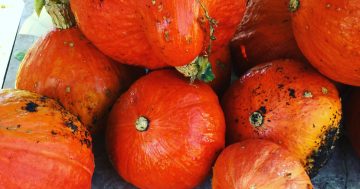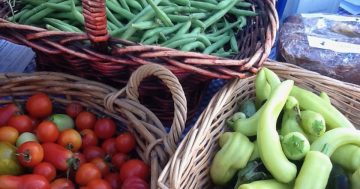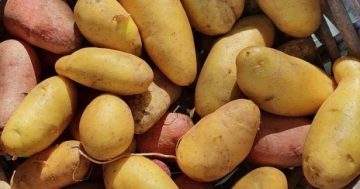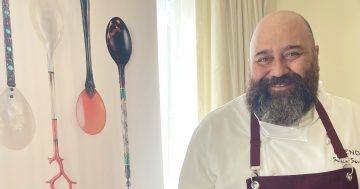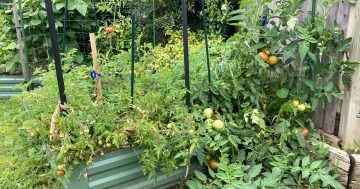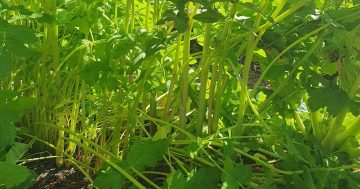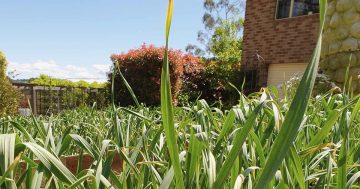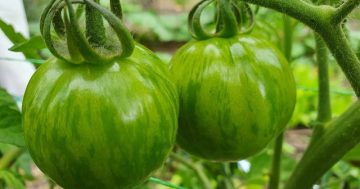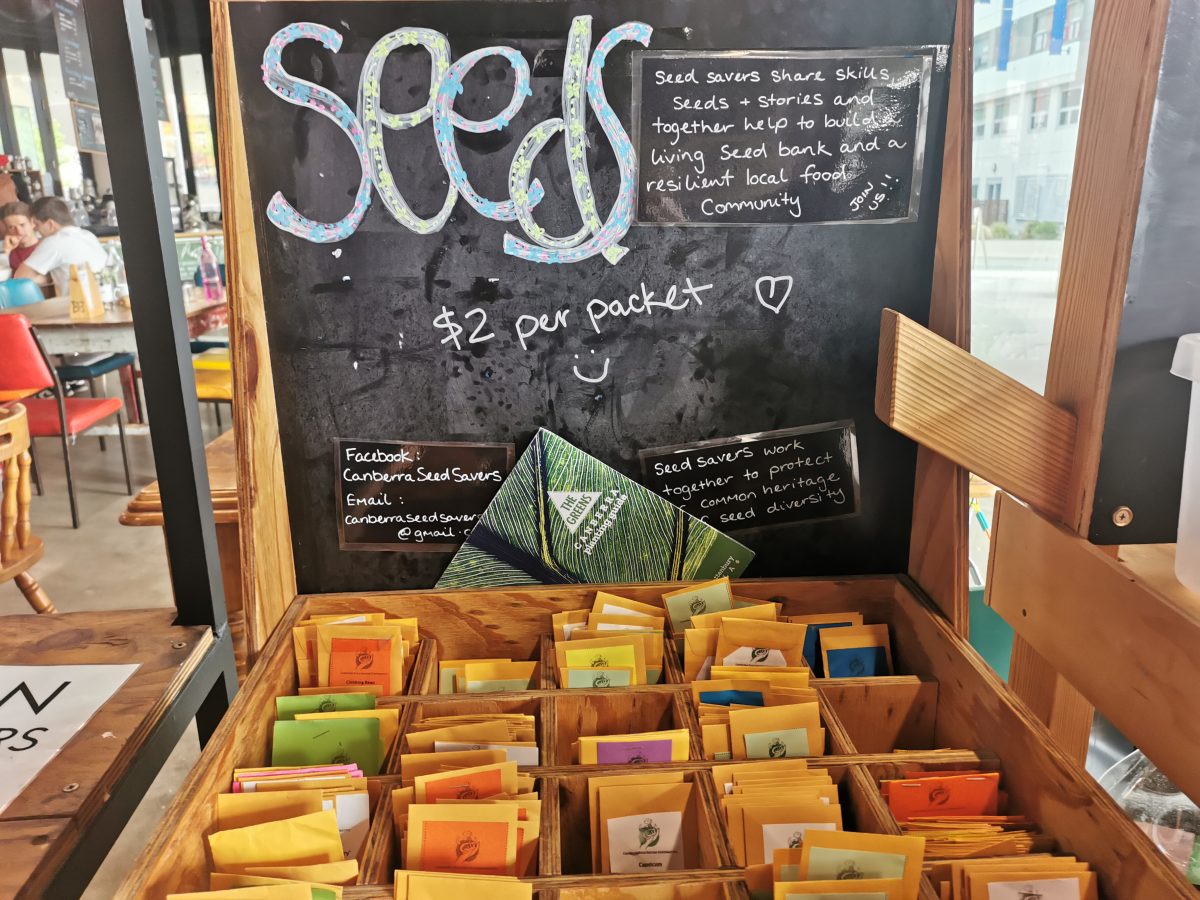
Canberra Seed Savers Cooperative is a local community-based network of people passionate about the importance of open-pollinated seeds. Photo: Serina Bird.
I love seeds. I love them so much that I’m a bit of a compulsive seed collector: I have packets and packets of them, including ones I’ve collected myself, and I love the idea of the potential for growing a whole garden.
Seeds are a powerful metaphor for abundance. For instance, one lettuce seed can germinate a whole lettuce – and once that bolts, it can lead to hundreds of seeds, some believe even 1000 seeds. And one tiny tomato seed could grow into a bush yielding 10kg or even more of fruit, with each tomato containing around 100 or more seeds.
I have a particular affinity for growing rocket. That’s the green, salad type, not the shoot for the stars variety.
One year, I tried unsuccessfully to grow them in my veggie patch. The year after, we hired a bobcat driver who churned up the backyard as part of some much-needed landscaping. Those underperforming rocket seeds spread throughout the garden, sprouting everywhere following some autumn rain.
Rocket is probably called rocket for a reason; when it has the right conditions, it is prolific, and what I experienced was a giant show of abundance. We enjoyed many rocket-themed dishes, and I gave away bunches and bunches at work.
Never one to let an abundance opportunity go to waste, I saved those hardy rocket seeds and they came with me when I downsized post-divorce and moved to an apartment. I continue to plant rocket seeds each year, where they do well, even in pots on my shady balcony. I’ve given rocket seeds to many people, and they continue to grow and grow.
I also love receiving treasured seeds from other people, who often gift them with a story about their growing experience. One of my seed gifts includes a Japanese green called tatsoi. I’ve also been given some amazing Italian parsley seeds that grow super well and thrive consistently in a Canberra winter.
Saving seeds isn’t new, but it’s becoming increasingly important to help preserve the genetic diversity of our fruit and vegetable crops. Go into any supermarket and you may notice a bit of same same when you scan the shelves.
Maybe there are two types of cucumbers, but generally there is only one type of any one vegetable, herb or fruit. A relatively small number of companies in the world controls commercial seed stock. This means that many variants of vegetables that might be delicious, unique, or best suited to particular conditions are not grown commercially.
Often, they are hard to transport or don’t fit into the box of what we know and expect. But we lose out when we don’t embrace difference. Imagine a world where you could only buy one type of tomato!
Canberra Seed Savers Cooperative is a local community-based network of people passionate about the importance of open-pollinated seeds. They swap and share seeds and are building a living seed bank. They hold regular Seedy Saturday Sessions where people can drop in and chat over a cup of tea and connect with other local growers. They also sell their seeds at a few places, including The Food Co-op Shop & Café at ANU and the Giles Street Kitchen.
At $2 a packet, Canberra Seed Savers seeds are cheaper than commercial seeds. And as they come from locally grown plants, they are uniquely suitable to the Canberra environment.
Canberra Seed Savers seeds are collected year after year and often come with unique stories. A few years ago, I was fortunate to be gifted an envelope of Richard’s butter beans. Canberra Seed Savers has sold these for a few years now, but the seeds themselves are not new.
Richard Trevanion from Charnwood first planted these Waltons in Canberra in 1974. He inherited them from his father, who lived in Cooma, and he has been growing them in Charnwood ever since. Over time, they have adapted to Canberra’s unique conditions.
‘I have continued to grow the beans which are resilient, pleasant flavour and heavy cropping, and encourage others to grow them too,’ he said, noting that these butter bean seeds are now hard to buy commercially. And now that I think of it, it’s been years since I have seen butter beans for sale on a supermarket shelf.
What I love about collecting and sharing seeds is the way they connect stories and people. I gave some of Richard’s butter beans to my in-laws last year. They grew abundantly on their property in Rossi, and we enjoyed many salad meals featuring these old-style beans. Not only were the beans delicious, but they became a topic of conversation over shared meals.
Do you enjoy growing fruit and vegetables from seed? And if so, do you collect and share the seeds to replant for a future season?












